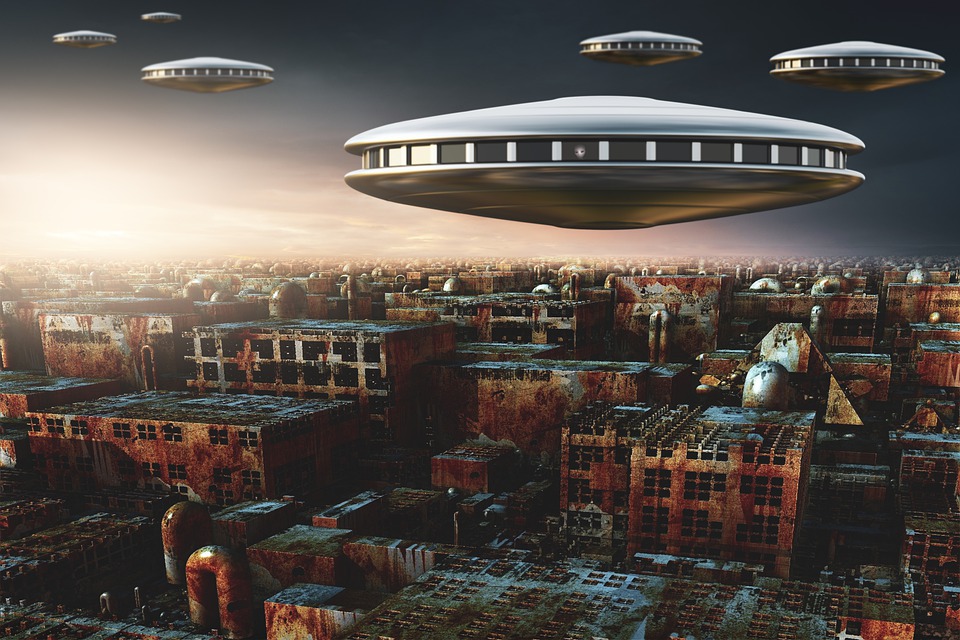Even as space agencies are looking for signs of life in the form of microbes, there may still lie the possibility of meeting actual extraterrestrials or intelligent beings outside Earth. In case the latter happens, a Russian cosmonaut shares the protocol that they follow.
The concept of meeting intelligent alien life forms is often interpreted in media and literature. But astronaut Sergei Kud-Sverchkov of the Russian space agency ROCOSMOS shares what they will do in case they meet such life forms. Kud-Sverchkov will be transported to the International Space Station in October, but prior to his leave, he shared what they might do in case they meet intelligent alien life at a news conference by media outlet Rossia Segodnya.
Kud-Sverchkov believes that meeting these kinds of life forms will not be any different from meeting any Earth-based species. Thus, he shared that the first meeting would be diplomatic. “I think that when meeting intelligent extraterrestrial life, we will exhibit friendliness, goodwill, and consideration. Just as we do when meeting intelligent and unintelligent life on Earth,” said the cosmonaut.
However, there are other scientists who have expressed against meeting aliens. The late Stephen Hawking described that aliens meeting humans would be similar to how Europeans met the Native Americans and committed genocide in an effort to conquer the New World. Hawking explained that we need to wait a little longer until we are advanced enough to respond to forms of alien communication.
The interest in aliens has been renewed as of late following the news of the discovery of phosphine - a kind of gas associated with alien life in space - in the atmosphere of Venus. A study has revealed that signs of life on Venus may have been transported to the planet through asteroids. Researchers from Harvard University claimed that a comet or asteroid that passed by Earth may have been responsible for bringing life to a planet like Venus, whose extreme temperatures are believed to make the planet inhospitable.
They were inspired after a meteor passed through the skies of Australia back in 2017. Thus, the researchers believe that a space rock could possibly pick up microbes while in the atmosphere before transporting these microbes onto another planet.



 NASA and SpaceX Target Crew-11 Undocking From ISS Amid Medical Concern
NASA and SpaceX Target Crew-11 Undocking From ISS Amid Medical Concern  SpaceX Starship Test Flight Reaches New Heights but Ends in Setback
SpaceX Starship Test Flight Reaches New Heights but Ends in Setback  Is space worth the cost? Accounting experts say its value can’t be found in spreadsheets
Is space worth the cost? Accounting experts say its value can’t be found in spreadsheets  Neuralink Plans High-Volume Brain Implant Production and Fully Automated Surgery by 2026
Neuralink Plans High-Volume Brain Implant Production and Fully Automated Surgery by 2026  CDC Vaccine Review Sparks Controversy Over Thimerosal Study Citation
CDC Vaccine Review Sparks Controversy Over Thimerosal Study Citation  Trump and Merck KGaA Partner to Slash IVF Drug Costs and Expand Fertility Coverage
Trump and Merck KGaA Partner to Slash IVF Drug Costs and Expand Fertility Coverage  Neuren Pharmaceuticals Surges on U.S. Patent Win for Rare Disorder Drug
Neuren Pharmaceuticals Surges on U.S. Patent Win for Rare Disorder Drug  Lost in space: MethaneSat failed just as NZ was to take over mission control – here’s what we need to know now
Lost in space: MethaneSat failed just as NZ was to take over mission control – here’s what we need to know now  Blue Origin’s New Glenn Achieves Breakthrough Success With First NASA Mission
Blue Origin’s New Glenn Achieves Breakthrough Success With First NASA Mission  SpaceX’s Starship Completes 11th Test Flight, Paving Way for Moon and Mars Missions
SpaceX’s Starship Completes 11th Test Flight, Paving Way for Moon and Mars Missions  FDA Pilot Program Eases Rules for Nicotine Pouch Makers
FDA Pilot Program Eases Rules for Nicotine Pouch Makers  Cogent Biosciences Soars 120% on Breakthrough Phase 3 Results for Bezuclastinib in GIST Treatment
Cogent Biosciences Soars 120% on Breakthrough Phase 3 Results for Bezuclastinib in GIST Treatment  NASA Astronauts Wilmore and Williams Recover After Boeing Starliner Delay
NASA Astronauts Wilmore and Williams Recover After Boeing Starliner Delay  Eli Lilly’s Inluriyo Gains FDA Approval for Advanced Breast Cancer Treatment
Eli Lilly’s Inluriyo Gains FDA Approval for Advanced Breast Cancer Treatment 































